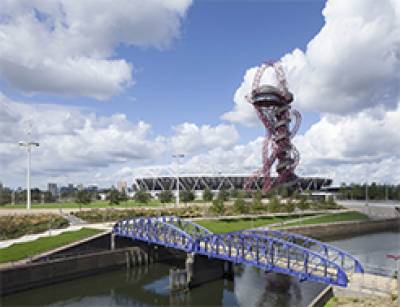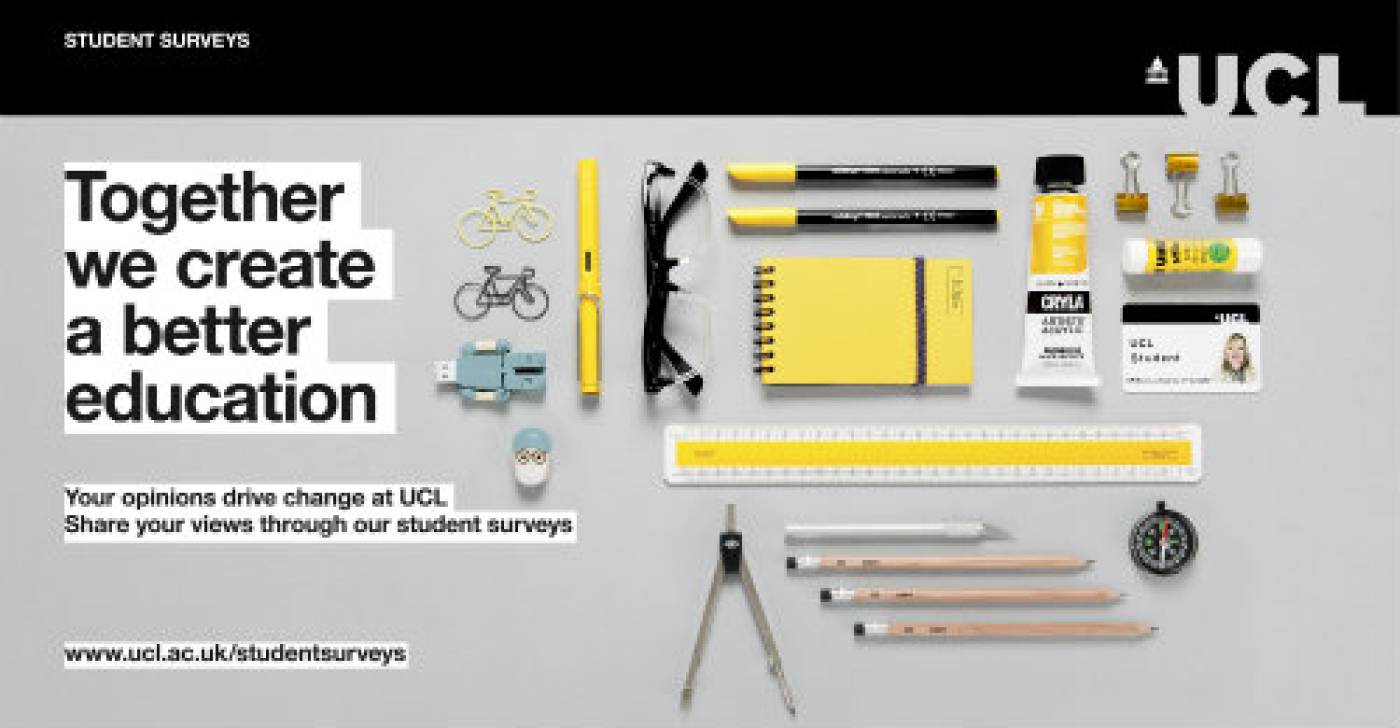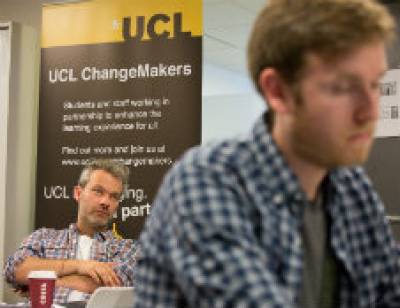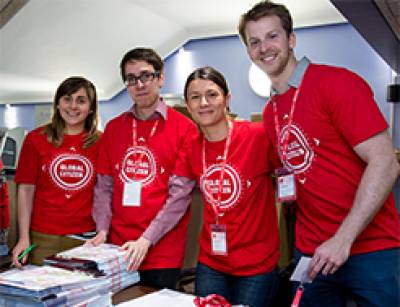Provost's Perspective: Working with you to improve the UCL student experience
10 June 2016
Congratulations on finishing your exams, I hope they went well.
 For me, summer is a time for
reflection on the academic year that has almost passed and the one that is about to start.
I'm intending to dedicate a good proportion of mine to my highest priority:
improving the student experience at UCL.
For me, summer is a time for
reflection on the academic year that has almost passed and the one that is about to start.
I'm intending to dedicate a good proportion of mine to my highest priority:
improving the student experience at UCL.
At the top of my list is the UCL estate - your living and social spaces, seminar rooms, lecture theatres and labs.

Already, as you will have seen, work has started on our New Student Centre, next to the Bloomsbury Theatre, and we're developing plans for the UCL East campus at the Queen Elizabeth Olympic Park. But just as important are the improvements we're making to our halls of residence. I'm delighted that Ken Mathew has joined us as Student Experience Manager. Ken will be working closely with you to improve the experience of living in UCL halls.
This summer we will be spending £5 million on refurbishing our student residences and, from September, we will be introducing a new tool that will mean maintenance requests will be dealt with more promptly and in order of priority. We've also made changes to ensure that you will now be given sufficient warning if there are going to be building works near - or in - your halls of residence. I realise how frustrating building works can be and I'm grateful for your patience.
Closer links with the world outside UCL
You will rightly judge your experience at UCL, to some extent, on how well we have prepared you for future career success.
Over the last year, UCL Careers has increased appointment times to 20 minutes and now runs late-night job application advice sessions, as well as workshops and presentations after normal working hours. Our online careers library, CareersTagged, is now available to you 24 hours a day and seven days a week.
I'm very pleased that more departments at UCL are expressing an interest in including some form of work-based learning into your degree courses. This academic year alone, more than 10 UCL departments have asked UCL Careers to advise them on this and I hope this continues to grow. Aboutone third of employers say they hire graduates who've had internships and placements with them. These opportunities, whether they result in a job offer or not, give you crucial skills and help you understand exactly what certain jobs entail.
As I'm sure you know, UCL offers you an impressive range of opportunities to learn outside your degree programme. Our Global Citizenship Programme is just one example of this. It's wonderful to hear from students who have developed a passion to work in global health or to campaign for environmental justice as a result of being on the programme and it's heartening that in just three years, it has grown from 100 students to about 900 this year.
I strongly believe that one way we can improve the student experience over the next few years is to ensure that more of the work you do - inside and outside your degree programmes - is both intellectually demanding and practical, with tasks that closely resemble real-world problems. The UCL Connected Curriculum is our unique model for this. At its core is the idea that intellectually curious students like you learn best when you experience first-hand the challenges and achievements of conducting research and that you get more from your studies when you make connections between your chosen field of study, other subject perspectives and the world beyond UCL. All this will fine-tune your critical thinking skills so that you become a confident problem-solver, an experienced communicator of complex information and a highly effective team member - skills that are crucial in today's workplace and in the wider world.
Addressing feedback and assessment and the postgraduate taught experience

You've told us in student surveys how important feedback and assessment are and I know that we could do better in these areas. That's why we are making urgent changes for the short-term, but also planning a major review of assessment across the university. By the end of next year, we will have finished the first stage of this and will understand much better the challenges around assessment at UCL.
A new feedback tool colleagues in Digital Education have developed holds great promise. The tool, called My Feedback report, allows you and your personal tutors to see all your feedback and grades across modules on one page. At the moment, you can only see your feedback when you click on individual assessments within courses. The tool, which worked well when engineering sciences students tested it, gives a bar graph of your performance over time and information about your grades and the marking scale for each assessment. Do talk to your lecturers about using it.
Many departments are experimenting with ways to improve feedback. MPharm students asked their lecturers if they could go through their marked exam scripts from last year with a personal tutor as part of their revision for this year's exams. This sounds like an excellent idea and I will be interested to read about how useful it is has been
Our Student Barometer survey shows that those of you who are on postgraduate taught programmes - that's Master's, PgDip, PGCert, MRes and PGCE courses - are less satisfied with your UCL experience than those of you on undergraduate or postgraduate research courses. As a result we have started a major review of postgraduate taught education to understand what we could improve. We will be speaking to your Student Academic Representatives (StARs), who represent students' views on faculty and university committees, and will be seeking your views over the coming weeks.
Turning your ideas into improvements

In my time here as Provost I have seen a substantial - and very welcome - growth in students working with staff to solve problems, identify new directions for the university and change cultures.
Our UCL ChangeMakers initiative, in which students and staff come up with an improvement for UCL, is a fantastic example of this. The initiative was just a pilot with 24 students in 2014 and now close to 200 of you are involved in it. Recent ChangeMaker projects include a mindfulness app to help UCL students remain calm during exams and other stressful periods and a conference held in March that brought geography undergraduates and postgraduates together to discuss their research.
The number of Student Academic Representatives (StARs) has also grown strikingly - from 887 in 2014 to 1,257 now. I'm delighted that they are helping us shape university policy and practice. The ideas for many of the improvements we have recently made, and those we intend to make, come from you.
Please continue to get involved. You are the experts on the student experience and your insight and imagination are crucial to making sure UCL constantly innovates and improves.
Professor Michael Arthur, UCL President & Provost
 Close
Close


